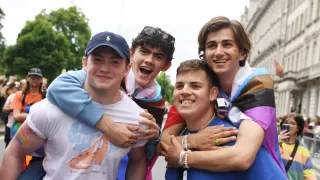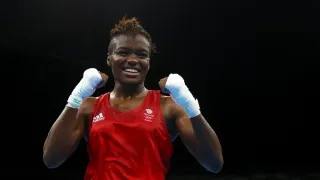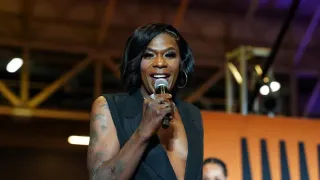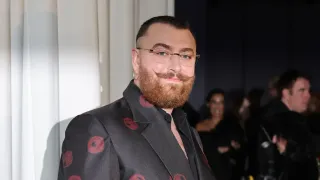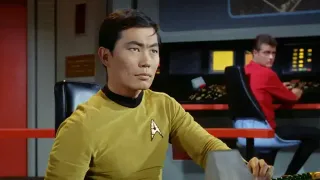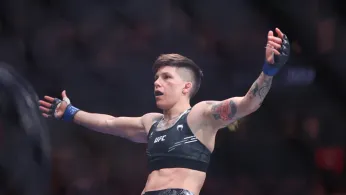
Jul 28
Macy Chiasson: Breaking Barriers in the UFC and Beyond
READ TIME: 3 MIN.
Macy Chiasson’s story is one of resilience, self-discovery, and tenacity—qualities that have defined her both as a UFC fighter and as an openly lesbian athlete. Born in New Orleans, Louisiana, on July 27, 1991, Chiasson’s entry into combat sports was unconventional. After a serious car accident in her late teens left her bed-ridden for several weeks, she began training in Krav Maga to regain her strength and confidence. Within a year, she was not only practicing but teaching the discipline, drawn to the mental and physical rigor of martial arts .
Her rapid development led to a transition into mixed martial arts, where she found a welcoming environment in local gyms such as Mushin MMA and Mid City MMA. The support of these communities fueled her progression from amateur competitions to the professional ranks, where her physical attributes—standing 5'11" with a 72" reach—gave her a unique advantage in the women’s bantamweight division .
Chiasson burst onto the international MMA scene by winning The Ultimate Fighter 28: Heavy Hitters, a tournament that showcased her aggressive, technical fighting style. As of January 2025, she holds the #5 spot in the UFC women’s bantamweight rankings—a testament to her consistency and evolution as an athlete .
Her record, as of mid-2025, stands at 11 wins and 3 losses, reflecting victories over both seasoned veterans and up-and-coming prospects . Chiasson’s approach combines precise striking—built around a crisp jab and looping right hand—with positional dominance on the ground. She has notched three wins by knockout or technical knockout, three by submission, and four by decision, underscoring her adaptability and toughness. Her grappling instincts, particularly her ability to secure rear-naked chokes, have become a signature tactic .
Chiasson’s performance has earned her three ‘Performance of the Night’ bonuses in the UFC, awarded for her wins against Sarah Moras, Pannie Kianzad, and Mayra Bueno Silva .
Beyond her athletic achievements, Macy Chiasson’s openness about her sexual orientation is a milestone for LGBTQ+ representation in combat sports. In a field historically perceived as hyper-masculine and heteronormative, her visibility as an out lesbian provides much-needed representation for LGBTQ+ athletes and fans. Chiasson is married to Dr. Hannah Leffler Chiasson, a distinguished flute professor, and frequently shares glimpses of their life together, highlighting the importance of authenticity and support systems for queer athletes .
Her presence in the UFC has not only broadened conversations around inclusivity but has also inspired other fighters and fans to embrace their identities. While the UFC has made public commitments to diversity and inclusion, the visible success of athletes like Chiasson reinforces the message that LGBTQ+ individuals belong at every level of sports .
IChiasson’s influence extends beyond her wins and rankings. As she continues to compete, her advocacy—both explicit and by example—reminds the sporting world of the importance of diversity and acceptance. She frequently acknowledges the role of her family, coaches, and wife in providing the encouragement needed to navigate the pressures of elite competition .
In interviews, Chiasson has discussed the challenges and rewards of being a visible LGBTQ+ figure in MMA. Her willingness to address issues such as homophobia and mental health contributes to a more inclusive environment for all athletes . She stands as a role model for young LGBTQ+ people who aspire to careers in sports, emphasizing that success is possible without compromising one’s identity.
As the UFC’s bantamweight division continues to evolve, Macy Chiasson’s path—marked by resilience, excellence, and authenticity—serves as a beacon for the next generation of athletes. Her journey underscores the transformative power of visibility in sport, both in and outside the Octagon.

